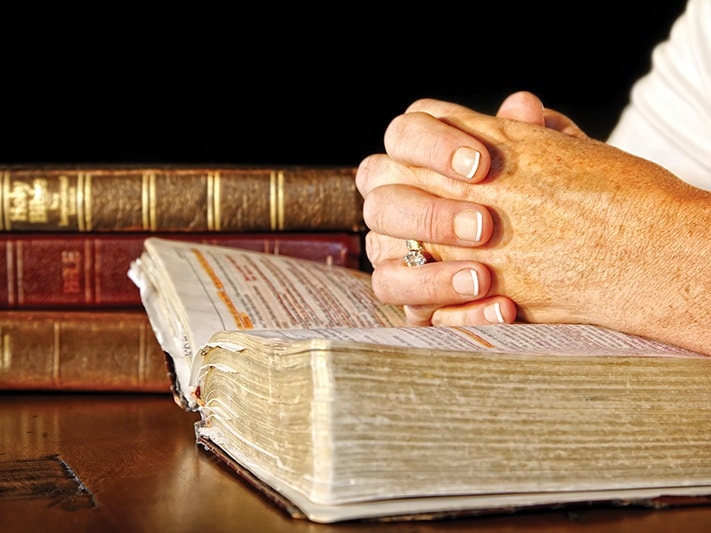What is the Catholic Church’s position on entering prayer? Is it New Age? Is it allowed for Catholics? Why or why not?
It is allowed, despite what some self-appointed guardians of Catholic orthodoxy are claiming on the Internet.
In a 2014 article in America (December 3), Sidney Callahan wrote: “The simple steps of the method are to choose a sacred word as a symbol of your intention to consent to God’s presence and action within. Then, settling comfortably, you introduce the sacred word and remain quietly attentive within God’s presence.
“When distracted from your focus by wandering thoughts, you gently return to the sacred word and openness to God. After a set period of prayer time, you remain thankful for a minute or two. Two 20-minute periods a day of practice are recommended, although many have to work up to this standard. “
At ForYourMarriage.org, the section on contemplative prayer notes that this type of prayer includes “Scripture prayer, centering prayer, and Eucharistic adoration. “
One web post accuses centering prayer as being a form of “quietism, ” a heresy condemned by the Catholic Church. Centering prayer is no such thing.
In the early Church, there was a dispute over whether gentile converts were required to follow all the Jewish laws. Some Christians were sent to Antioch to chastise the Christians there for being lax on this. The resolution of this dispute is described in Acts 15:1–35, ending with a letter the apostles sent to the Church in Antioch.
Verses 24–26 read: “Since we have heard that some of our number [who went out] without any mandate from us have upset you with their teachings and disturbed your peace of mind, we have with one accord decided to choose representatives and to send them to you along with our beloved Barnabas and Paul, who have dedicated their lives to the name of our Lord Jesus Christ. “
Zeal can never substitute for the truth. Some people use the term New Age to describe anything they don’t like. Jesus said to the Jews who believed in him, “If you remain in my word, you will truly be my disciples, and you will know the truth, and the truth will set you free ” (Jn 8:31b–32).
Do the shrill denunciations we increasingly hear in the Catholic Church today come from Jesus’ disciples who are remaining in his word?








